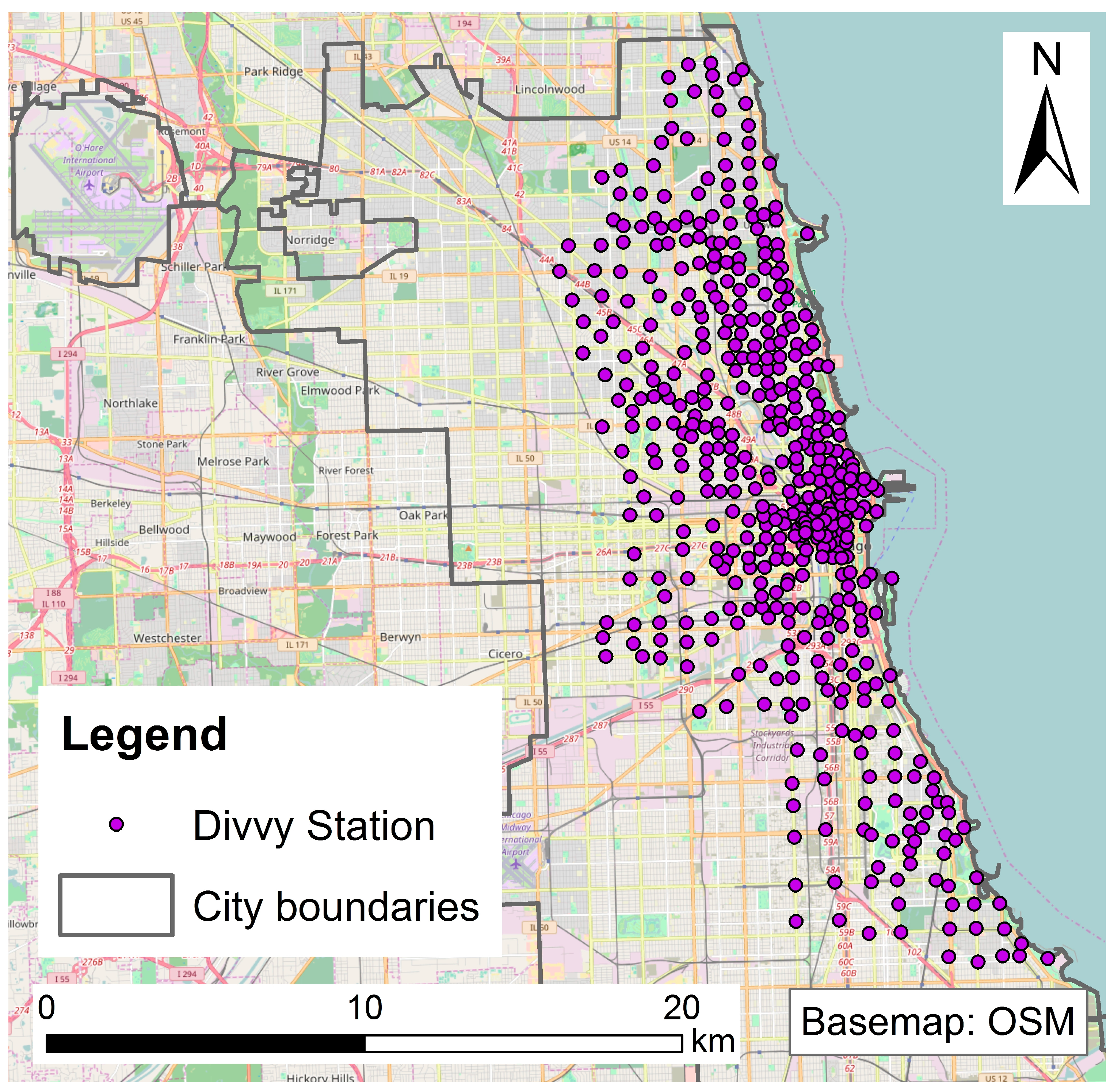As it is widely accepted, cycling tends to produce health benefits and reduce air pollution. Policymakers encourage people to use bikes by improving cycling facilities as well as developing bicycle-sharing systems (BSS). It is interesting to investigate how environmental factors influence the cycling behavior of users of bicycle-sharing systems, as users of bicycle-sharing systems tend to be different from regular cyclists. Therefore, in this study, we aimed to investigate how road safety, convenience, and public safety affect the cycling behavior of BSS riders by controlling for other environmental factors. Specifically, we investigated the impacts of environmental characteristics, including population density, employment density, land use mix, accessibility to point-of-interests (schools, shops, parks and gyms), road infrastructure, public transit accessibility, road safety, convenience, and public safety on the usage of BSS. Additionally, for a more accurate measure of public transit accessibility, road safety, convenience, and public safety, we used spatiotemporally varying measurements instead of spatially varying measurements, which have been widely used in earlier studies.
Our inverstigation was performed for the city of Chicago in United States, and we particularly attempted to answer the following questions: (1) how traffic accidents and congestion influence the usage of BSS; (2) how violent crime influences the usage of BSS; and (3) how public transit accessibility influences the usage of BSS.

If interested, you are kindly invited to read the methodology and results of our empirical analysis in the full article below:
Sun, Y., Mobasheri, A., Hu, X., Wang, W. (2017): Investigating Impacts of Environmental Factors on the Cycling Behavior of Bicycle-Sharing Users. Sustainability , 9(6), 1060.


